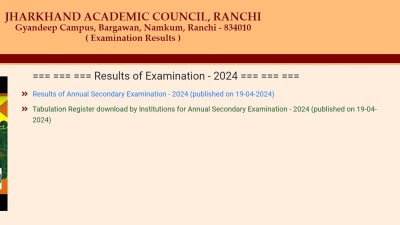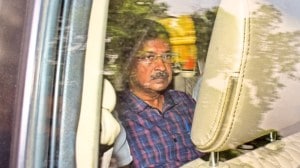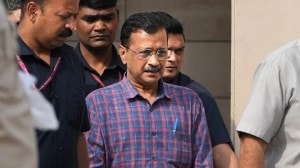- India
- International
Professor Irfan Habib on Indian history, culture debates, nationalism, RSS and more
Renowned marxist historian, Professor Irfan Habib of Aligarh Muslim University, on Mahatma Gandhi, modern India, nationalism, RSS, contemporary culture debates and history as a discipline in this long-form, in-depth interview.
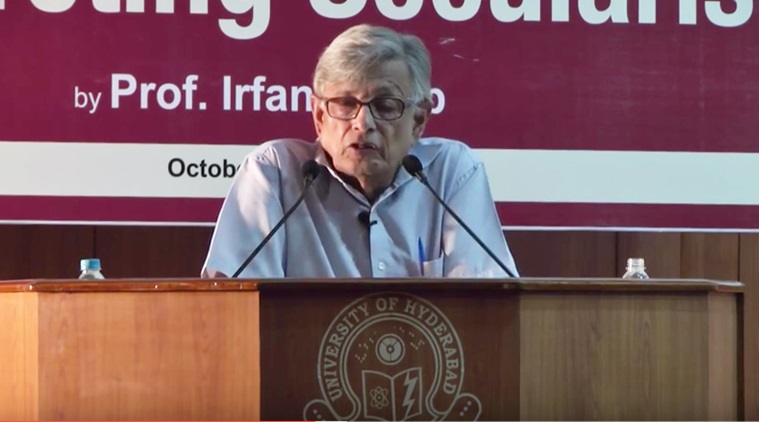 File photo of Irfan Habib. (Source: YouTube screen-grab)
File photo of Irfan Habib. (Source: YouTube screen-grab)
India’s renowned marxist historian, Professor Irfan Habib of Aligarh Muslim University, speaks to independent journalists Jipson John and Jitheesh P. M., associated with People’s Archive of Rural India (PARI) in this long-form, in-depth interview on Mahatma Gandhi, Indian history, nationalism, RSS, contemporary culture debates and history as a discipline. The interviewers extend special thanks to Mudasir Ali Dar.
India is at 70 now. You have lived in through the pre-independent and Independent periods. How do you look at its past 70 years? What are the achievements and the challenges?
If you compare free India with British India, the change is enormous both in the case of growth and in the case of economy. To say that nothing occurred is absurd; the nation doesn’t come on its own in 1947. Look at the growth of national income and you will see that between 1900 and 1947, it didn’t grow even by one percentage per year. So when one says that just three percentage annual growth or Hindu rate of growth in post-independent period, two things should be said about. You must compare it with the previous situation. Another important thing is that it was in productive sector, not service sector, that there is modern growth. Modern growth is often very deceptive because you are now counting service sector and it is always very difficult to say whether service sector really affects the economy or production. Is it a productive thing or merely a class of wealth which counts for national income? I am not going into that debate. It is obvious that the basic index of growth should be in the productive sector not in the service sector.
In the contemporary Indian political situation, the narrative and discourse on nationalism is hegemonised by the right wing Hindu definitions. All those who do not subscribe the Hindutva ideology are easily being targeted as anti-nationals. What does nationalism mean to you?
I think nationalism was one thing when you were fighting colonialism. Nationalism is quite another thing when you are free. Then nationalism meant what you are doing for your people, not what we want to do at the frontier. Any kind of humanity means you consider the interests of whole nations not only your own. Here one can learn from Gandhi during his last days.

How do you characterize the Indian national movement? For Cambridge scholars, there was no such thing as National movement. For subalterns, it was elite in nature. The Marxist historian Bipan Chandra changed his characterization of it as a bourgeoisie class-led movement into a multi-class movement. How do you assess the nature and character of Indian national movement?
For a complex situation like the national movement, it is very difficult to have a classification which will apply to all its phases. It was obviously, consciously, a middle class, bourgeoisie-led movement. But when you use the word bourgeoisie it doesn’t mean mill owners only. Often ‘bourgeoisie’ economists in England like Adam Smith, David Ricardo and so on were very critical of their capitalists. They could not be classed as compradors of capitalists. They were describing the capitalist economy and accepting the principles of competition. That is why they are classical economists, not bourgeoisie economists.
One must remember that when you are saying bourgeoisie leadership, you are not saying it is capitalist leadership in actual fact. We know that capitalists have very little influence on the policy making of the congress. Surprisingly little influence. As it came out in the civil disobedience movement, the businessmen of Bombay approached G D Birla and said we should go to Gandhiji and say that enough is enough and G D Birla says I don’t have the courage. ‘He tells I listen. It doesn’t happen that I tell he listens,’ said Birla. The vision of India was within Congress. Of course this was a vision of bourgeois democracy. You see it in Karachi resolution. It is not socialism but welfare state of bourgeois democratic development. If you separate actual class basis from vision then of course it is bourgeoisie. It is very difficult to see how it going to be otherwise. Even communists have learned that there has to be a stage of people’s democracy and now we are learning perhaps that even in socialism there has to be a large area of competition as Chinese experience tells. So these things we learned.
I think my friend Professor Bipan Chandra’s characterization went too far as he condemned the left movement – a whole volume against the left. That was very unfortunate. However, he was correct in many points. We were far too critical of Gandhiji and Nehru in the early years of independence. We were correct in many criticisms. But given the situation India was in, where public sector and land reforms were the two engines which alone could develop the economy and to a large extent you should not denigrate the extent of land reforms. Of course there were many weaknesses in land reforms. But still it was a great change. Large distribution of land among peasants was very important. Communists made a mistake by opposing the Zamindari Abolition Act, which was thought of as not enough. But large number of peasants thought that was quite enough. So by experience we must revise our opinion of that period. I must say that Hiren Mukherjee was very bold. He spoke about the concerns but he also wrote a biography of Gandhiji in 1958. He was the leading communist intellectual of the country and this very title ‘Gandhiji’ showed what he thought of him. We the communists always spoke Gandhiji or Mahatmaji privately and Gandhi publicly.
There are various criticisms against Mahatma Gandhi. One major criticism is that annihilation of caste was not in his agenda. Dr. B.R. Ambedkar criticized Mahatma Gandhi on this point. Some contemporary Dalit writers go to the extent of saying that he betrayed Dalits. What is your take?
Gandhiji finally came into a Hinduism in which there was only belief in God and morality essentially. Of course he incorporated all kinds of social reforms. He may say that he believed in the caste system but in practice he did not. He said ‘I am Santan Dharmi’ but in practice he never prayed in a temple. He did not talk to his wife when she went to Jagannath temple secretly. So he really reshaped Hinduism as modern. Of course, it has its own difficulties which you have also in radical Christianity, that you act not according to scriptures. Those difficulties are there. But without Gandhi you would not have a Hindu code surely. Hindu Code changed Hinduism totally in 1955. Today they may speak of ancient Indian civilization but even the BJP cannot revise the Hindu code and go back to pre-Hindu code days.
The so-called the Dalit case against Gandhi is overstated. As you know, Gandhi began opposing the untouchability when he was in South Africa. That was his first quarrel with his wife. At that time there was practically no Dalit movement in India or South Africa. He was influenced by the writings of Tolstoy and others and also Christianity. Usually we underestimate the influence of New Testament on Gandhi, which he tried to read entirely also. Even the Quran contains nothing like the New Testament, a different view of life fundamentally. But Gandhi insisted that those scriptures were in agreement with New Testament.
Let us recognize mainly that he was against untouchability and he actually cleaned the latrines long before he came to India. When he came back to India there is a famous episode that in his Ahmedabad Ashram he took Dalit couple and insisted on eating with each other. Because of this, two or three very important persons left the Ashram. They were agreeing with Gandhi for everything except eating and drinking with the Dalits. Although Gandhi used to say that I am not suggesting interdining, he was interdining as earlier as in 1915. In the episode, there was a social boycott of Gandhi. A mill owner whom Gandhi did not identify but people identified as Ambalal Sarabhai, came in the evening just handed over to him thirteen thousand and left. Why Ambalal Sarabhai did this I don’t know but these are well known facts and there was no Dalit movement at that period. So his battle against untouchability is there.
The second thing I will ask if he had opposed the caste system, would Indians have given him a hearing? That time everyone was saying that they cannot do anything common between the poor and the rich. In such an atmosphere if he had said ‘I do not believe in the caste system — you should abandon that’? In the Ashram, there was no caste system. I do not think there was any betrayal of Dalits. Even the Pune pact is very wrongly attacked. One thing forgotten about Pune pact is that it more than doubled Dalit representation. Nobody talks about that. Instead of seventy seats I think, seats were raised to one fifty in the concession of the joint electorate. The second thing of course was the Harijan case. It was not the intention of the Gandhi disregarding Dalits as illegitimate. This is a pernicious interpretation.
Actually, the left should be grateful to the Gandhi because the many of our leaders came from the Harijan movement. Out of five of the major communist leaders, three came from Harijan movements. They were Thakurs and Jats, not Dalits. They are abandoned by their families, nobody would meet them. That took them into left. All of them lived not in Jat busties but in Valmiki busties. In fact the large part of the communist movements came from the Harijan movements.
Caste-based oppression is still a grim reality in India even after 70 years of freedom. What sustains caste and how could address the problem of caste oppression more realistically?
I think caste is sustained by economic advantages of the upper castes partly and partly by customs and superstitions.

Mughal rulers, Tipu Sultan, any name and anything related with Muslim identity in Indian history has been targeted and attempts are there to erase out the entire history. The latest attempt is from various BJP leaders saying that Taj Mahal is a blot in India history. Even Mughal rule has been identified as more oppressive than the British colonialism. As a historian specialized in medieval history how do you react?
Well. It is true that there have been various interpretations of medieval Indian history. Some around 19th century, first with the British history writing and then with the development of communal writing both on Hindu side and Muslim side. The communalization of Indian history is quite old. It is not recent. On the one hand where the nationalists said that India had been under foreign rule for hundred years or more and the Hindu nationalist people said India has been under foreign rule since 13th century or a longer period. The Muslim historians like Ishtiaq Hussain Qureshi talked about Muslim rule. Even Muslim League leaders said they ruled all over India. So that was the interpretation on both sides which the nationalists rejected.
The nationalist point of view was that leaders and rulers may have been of foreign birth originally but they were Indianised. They argued that British rule was different from Muslim rulers because the British drained wealth from India, whereas under Muslim rulers the wealth of India remained within India. You can find the implications of it in the writings of R.C. Dutt, Dadabhai Naoroji and so forth. This is the basic difference that the critics of medieval Indian governments now forget. This is not the view of both ‘Muslim’ and ‘Hindu’ historians. The nationalists had a different view altogether.
As far as specific things are concerned, serious and professional historians, even when they took the view of people like R.C. Majumdar of an oppressive Muslim rule, they based their arguments on facts. The point is R.C. Majumdar is still a serious historian because whatever he speaks is on facts that all historians admit to be true. It is only that you have one set of facts against another set of facts. But the history from the RSS side from late 1950s has been different. They are not dealing with historical facts. They are in effect dealing with what should have happened. Hindus should have built the buildings that Muslims built, which I would say is almost a mad doctrine. The more communal Indian politics gets the more of this is likely to take place. You can see the same thing in Pakistan – of how history is rubbished. Taxila and Mohenjodaro have been read out from their history. Since they were non-Muslim, they were nothing. In a sense, this is natural once religion takes such a hold and in the electoral process religious appeal is very effective and you can see that again in Pakistan. That is also happening here. Here it is combined with or in close alliance with the corporate sector.
Cow has been a subject of fierce debate in our public sphere. Is cow as sacred in Indian history as claimed? From which period onwards cow became holy for Hindus? How and when cow politics emerged in public discourse in India?
It is true that cow is a sacred animal in ancient Indian civilization. Not perhaps in the Rig Veda. But in later Vedic literature and Brahmana texts, the cow begins to be considered sacred. Not in Buddhist or Jain literature because they didn’t distinguish between animals, but certainly in Brahmanism it was important. Why this respect aroused, one doesn’t know. Why they don’t go for buffalo, that too one doesn’t know. Why Muslims hate pork, one doesn’t know. Jews did it; they copied it. But why all these absurdities? These religious beliefs grew not because of reasons. It is because of customs and they acquire religious sanctity. The fact is that Muslims eat beef from quite old times. Muslims were described as chandalas and beef eaters in earlier works — perhaps a work of Arabic origin of 8th century, which describes how Hindus talk bad of Muslims who eat beef. So it is an old prejudice against Muslims just as Muslims are prejudiced against Hindus for being idol worshipers. So these are absurdities linked to religious views.
In public discourse cow protection is quite old. As nationalist consciousness grew there was some violence over it in the 19th century. Gandhiji takes note of it in earlier statements. But he tried to make a compromise saying that Hindus should try to keep the cow well. There should be some compromise with Muslims. There is a wise statement which he repeats often, that is, ‘to save a cow no man should be given’. Perhaps he was anticipating the BJP regime! He says that attacking a man for saving a cow is against all religion and all humanity.
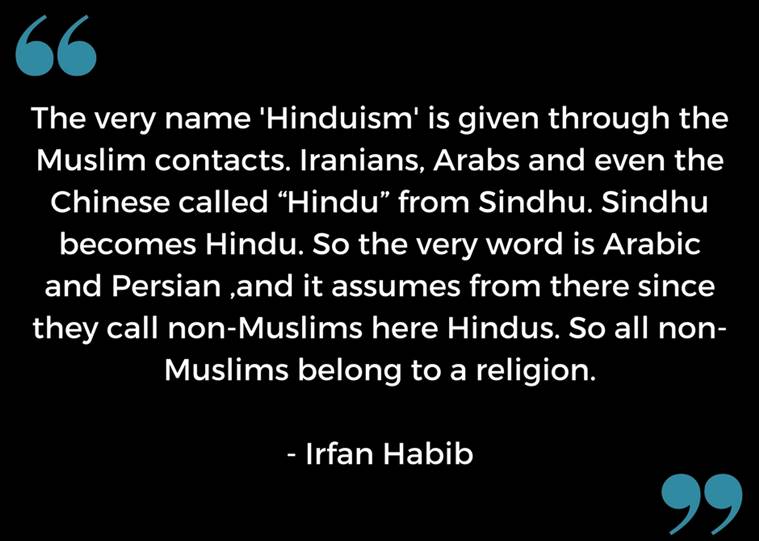
The orientalists viewed Indian culture as essentially spiritual in nature. People like Swami Vivekanandan championed this spiritual superiority of India. Even now people pride in India’s great spiritual culture and its legacy. Is Indian culture essentially representing this spiritual character only? What about the other philosophies and cultural outlooks like that of Charvaka?
I think the statement that the orientalists pictured Indian culture as spiritual is misleading. The orientalists did not have a single view of India. None of the serious orientalists who have written on Indian religion believed that India was simply spiritual. But it happens that only the writings of literate people or religious people survived. In the time of Vedas when there was no writing, only memorized texts would survive and memorized texts were those which were regarded as religious. Otherwise why should memorize anyone. Muslims do not memorize things other than Quran. They don’t even memorize Hadith now. So memorization meant only religious texts would survive. Religious and quasi-religious texts could survive. Therefore you get an impression that ancient people thought only about religious matters. I have not read any important orientalist who makes the statement that India’s culture is always spiritual. In fact they studied its writing, sculpture, architecture and secular literature. Many of them were fairly critical in their approaches.
I have no high regard for Swami Vivekananda’s championship of Indian spirituality. Every country contributes to civilization. We have also contributed. There are philosophical speculations in Upanishads which are interesting to hear. There are many other things in Upanishads themselves which nobody takes serious. As far as Charvakas and other philosophies are concerned, their texts didn’t survive. We know about them only from their critics and often sometimes the critics, in order to attack these positions, are inventing it. So it is very difficult to see what element is really genuine in this philosophy. So you have the situation that you have a philosophy which is only described by the critics. That is the case in other civilizations also, not in ancient Indian civilization alone.
Historian Suvira Jaiswal says that more than a religion Hinduism could be defined more in terms of its caste system. According to her that is its core. Strictly speaking is Hinduism a religion like the Semitic religions? Colonial situation gave birth to what Romila Thapar called syndicated Hinduism? How do you locate Hinduism’s historical transformations?
Well, I have read that Suvira Jaiswal’s particular statements that Hinduism should be defined more in terms of the caste system. Clearly, the Rig Veda does not have caste system. More to the point is whether Hinduism should be treated as a religion like Islam or Judaism or Christianity or Zoroastrianism. In a sense, Buddhism is not a mass religion. It is a monistic religion. Only Bhikkus and Bhikkunis are in real terms of Buddhists. As far as lay men are concerned they may come to a Stupa and worship the Buddha and then they may equally go to a Brahmanical temple. So these are not religions in which you stand up and counted. If you had asked Harsha, what is your religion he would say that sometime I worship Shiva and sometime I go to the monastery and greatly worship Buddha. Hiuen-tsang describes him as a Buddhist whereas inscriptions describe him as a Shaivaite.
I think contact with Islam introduced this particular way of Hinduism. Let us say, Semitic religion in one sense. And the very name Hinduism is given through the Muslim contacts. Iranians, Arabs and even the Chinese called “Hindu” from Sindhu. Sindhu becomes Hindu. So the very word is Arabic and Persian and it assumes from there since they call non-Muslims here Hindus. So all non-Muslims belong to a religion. Because of the Dharmasastra, caste system has become a part of Hindu custom — Brahmanical custom at any rate — and then it is possible that it has become stronger rather than the weaker. Of course, in some ways the authority of upper caste has been loosening in modern times. But in social matters it is still strong. In occupational matters and fixities it has weakened considerably.
As I have argued religion in India or Dharma was more of moral conduct and truth seeking than what you would call religion. When you talk of Semitic religion we do an injustice to Zoroastrianism. In fact all these Semitic religions have the basic frameworks which Zarathustra gave. God, angels including devil, Satan, scripture, afterlife, when you pass through a bridge which leads to heaven and it is a narrow way so if you fall down you go to hell, all these concepts transmit into Judaism and from Judaism perhaps directly to Christianity and Islam. So these are the scriptural religions and these are the religions in which you stand up and counted. You have to decide whether you are a Christian or a Jew or a Muslim or a Zoroastrian. As I just tried to show, it was from medieval times, the term Hindu starts. Even in Vijayanagara Empire the term Hindu came very early. But in a curious phrase, the Vijayanagara emperors call themselves ‘Hindurayasuratrana’, Sultan over Hindu race. The emperor himself thinks he is not a Hindu. His race is Hindu. The word is there and Prof. Sharma used to tell me that in northern up branches, the term Hindu came even earlier. But it is not earlier than 14th century. It is therefore very laughable when so many things said about Hindutva and Hinduism so on, not realizing that all the time they are speaking of an Arabic import into the language and perhaps along with the concept.
Modernization influences every religion in different ways. First, it tends to make the religions more uniform whether it is Christianity or Islam or Hinduism. In that sense, it is not only syndicated Hinduism but syndicated Islam and syndicated Christianity. Because everyone was trying to find universal principles and that happened to Hinduism also.

Why and how the texts of Mahabharata and Ramayana become so much popular among the people of India? What makes them special? What is their place in Indian tradition?
D.C. Sircar wrote an interesting work on Ramayana. While saying that the text has no historicity, he looked at inscriptions. What was the concept of Ram and also sometimes Laxman in the inscriptions? It is very late that Rama was regarded as a deity. Earlier he was more a hero than a deity. There is very little about him as a deity in Sanskrit and other languages. For instance, I don’t know when Ram enters the Brahmin literature. My impression is that it is very late. It is around 9th and 10th century that Ramayana and Mahabharata traditions become really popular as they enter languages. The Malayalam literature begins with Ramayana. Actually the epics promoted a kind of religious unification at a level lower than Brahmanical. There are some Russian writers who thought that the development of local languages is a sign of rise of regional nationalities. I am arguing that it is a sign in the reverse. They are looking the common traditions. Of course, the fact is that almost all these regional languages are religious. Scientific texts are more or less literarily in Prakrit and so on but not in local languages. So it is an issue to be discussed.
Obviously both texts will have a large place in Indian tradition. But they can’t be regarded as historical. They have a history. They have influenced our ideology. They cannot be regarded obviously as historical. It is with all religious traditions. For instance, Islamic view on Noah’s flood can’t be regarded as history. There can’t be Islamic archaeology as there can hardly be a biblical archaeology beyond a certain point. The fact is that some New Testament verses go back to very old period. But essentially they are mixed. So you can’t really reconstruct history on the basis of those texts. You may believe in them. But as a historian you can’t rely on it. Certainly they are literary works of great merit.
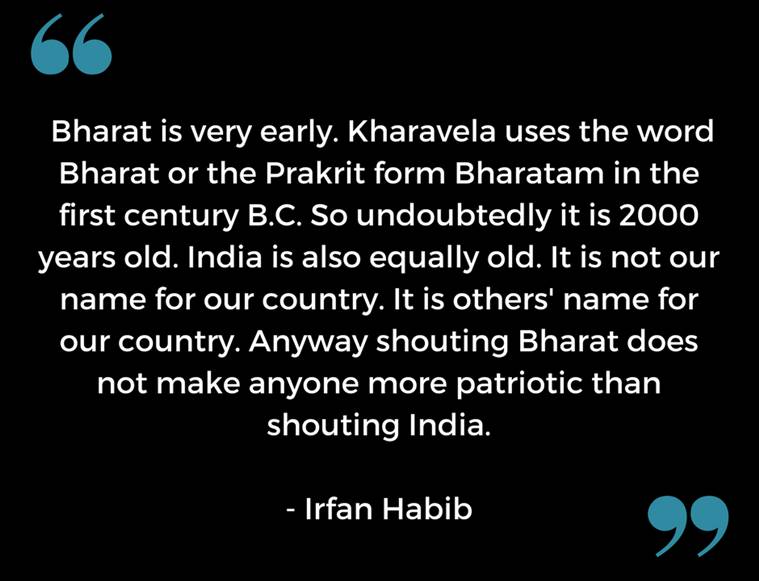
India is the commonly used name of our country. Bharat is the name preferred by the Hindutva elements. How do you trace out the evolution of the concepts of Bharat and India through the ages?
Bharat is very early. Kharavela uses the word Bharat or the Prakrit form Bharatam in the first century B.C. So undoubtedly it is 2000 years old. India is also equally old. It is not our name for our country. It is others’ name for our country. Anyway shouting Bharat does not make anyone more patriotic than shouting India.
Deendayal Upadhyaya, a Jan Sangh leader and Hindutva ideologue, has been pushed through official patronage as a great figure in Modern Indian history. His birth centenary has been officially celebrated by the union government. Who is Deendayal Upadhyaya and how his personality ‘matches’ with persons like Gandhi and Nehru in India history?
As far as Deendayal Upadhyaya is concerned he did nothing before 1947. He was not in the national movement. He didn’t say anything fundamental. He was extremely communal. Read him. Then you will find that integrated humanism is an absurd. You could find very reactionary and communal views. Possibly he was an efficient organizer as he organized Jan Sangh on the basis of RSS. People of India have voted for the BJP government and therefore it is natural that BJP should promote Deendayal Upadhyaya because they have no one else to promote. People should note that Deendayal Upadhyaya played no role in national struggle although he was quite mature by the time Independence took place. His integrated humanism is nothing but a restatement of Golwalkar’s communalism.
At a personal level what influenced you to become a historian. Of course your father was a well-known historian. Apart from that what was the major influence?
My father was a historian but he wanted me to take Mathematics. He says in Mathematics you have reason and argument but in history you are speculating. I was in double mind between economics and history because as a prospective Marxist I thought that economics should be my dream. I don’t know ultimately what took me to history in MA. In BA, I took both subjects. I have no particular obsession with history except that everyone who is a Marxist feels that one should apply Marxism to history.
You are better known as a Marxist Historian. What Marxism, as a methodology, offers to your historical research and study?
I feel that Marxism poses problems to a historian which other approaches do not pose. For instance what are the economic consequences of caste system? You will be surprised that this matter seldom discussed by earlier students of the caste system. It struck me when I was reading about British revenue settlements in UP that the British revenue officers were not concerned about the particular use of caste system this way or that, they were discussing about whether they should establish chamar villages. They said that chamars are good cultivators, belong to schedule castes and should be given lands. Then the other objection was if they are given land then the neighboring villagers will ask for the reduction of tax because they will lose laborers or wage will increase. That reminded me, brought to my mind the fact that the caste system had the economic consequences. It provided the peasant and not only the landlord, wage laborers needed in the harvesting time. Therefore I then tried to study the effect of caste system on the economy. Perhaps the caste system was regarded as inviolable by almost all the Muslim rulers. You will never see criticism of the caste system in any Muslim writing. This is astonishing. Criticism of Idol worship? Yes! Caste system? No! In fact Muslims also believed in hierarchy, that god has created hierarchy. They didn’t believe in equality. So caste system is also created by god! It fills your pockets.
We have a galaxy of towering Historians. Who influenced you in maturing and developing your research?
Well. Many historians of course influenced me. I have been influenced by historians like Tara Chand, R.S. Tripathi and others, W.H. Moreland, the British administrator and student of agrarian history in India and economic history. Later on it is people like D.D Kosambi and R.S. Sharma who influenced me.
How do you evaluate the growth of history as an academic discipline in India in the post-independence period? Outside of academic arena, for people at large history means anecdotes and myths it seems. What are your thoughts?
There is not anything particular about history. As education has grown, as there are more economists and sociologists, there are also more historians writing about our history. Naturally, the pioneers were earlier. Modern ideas of historiographical thought came, inscriptions were deciphered, source areas grew larger, studied languages and learned from the orientalists to be objective and scientifically rigorous. So history has developed. One of the major difficulties of today in the methodology is the linguistic problem. For instance in India Persian was once the main language; local languages were different from those that are spoken now and their scripts were different. So there are problems of method. Same applies to archaeology. Archaeology is getting rigorous every day. Unfortunately we are not able to use it.
Our problem in history is really that of rigor. There are general problems with higher education into which I don’t go about. Obviously the teaching process is getting less and less intensive. Classroom teaching is declining therefore standard of papers is going down. You can see it in the Indian history congress proceedings. We have a large number of papers now, something like a hundred and twenty. But if you take a volume from around 1950s or 60s you see that each paper added a bit of knowledge. Today you will see many papers which are repetitive or dealing with things of no importance. These things are important. I don’t know how one can restore the rigor of historical method both in history writing and archaeology.
As far as anecdotes and myths are concerned one need not seriously take what BJP and others think. But there are problems of over praising our strengths. For instance, in archaeology there is a problem of early dating. If there are three alternatives, we take the earliest date alternative whereas in scientific archaeology you would rather take the latest. So it is a question of scientific methodology and unless we introduce more vigor, whatever be our views, we can’t progress.
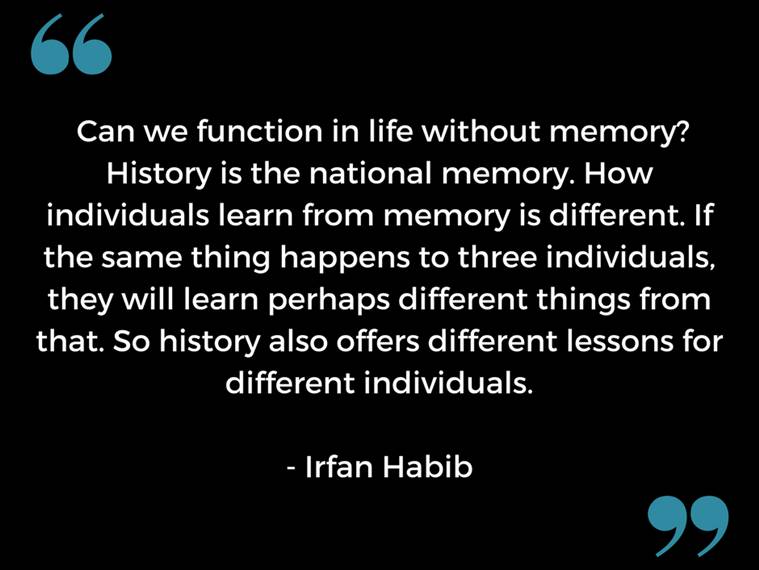
How is the knowledge about past or historical consciousness relevant and important to present?
Of course, history is relevant to present day as individual’s memory is relevant. Can we function in life without memory? History is the national memory. How individuals learn from memory is different. If the same thing happens to three individuals, they will learn perhaps different things from that. So history also offers different lessons for different individuals. So clearly the knowledge of the past is essential. It is one of the failures of our civilization, ancient civilization that we neither developed history nor geography. We talk about the greatness of thought. But can you consider a civilization complete without knowledge of geography? Look at the Chinese. The earliest map was made by Chinese around first century B.C and it survives. We couldn’t make the map of our own country. These were essential weaknesses of our civilization. That is why it is very important to have a critical approach towards our past.
How do you look into the recent trends in Indian historiography especially the New-Cambridge school, subaltern studies and post-modernist school?
Cambridge school and subaltern studies are essentially in agreement. They are not really two different schools. They are two different statements of the same view, with different emphasis. They are united in the view that the Indian National Movement was a movement of the elite. They may differ in the definition of elite.
The subalterns, going by the foundational essay in subaltern studies by Ranajit Guha, even do not believe in imperialism. Very much like the Cambridge school they have no belief in imperialism. They are talking about the contradiction between the colonial elites – not imperialism — and Indian elites as if this is a totally different area. Both elites are equally condemnable, which actually Anil Seal describes as collaboration and competition and that it is this approach subaltern share.
Then who was the real fighter who resisted the English? Here, there is a difference. Cambridge school in effect says nobody. Subalterns say subaltern communities. Ask what are the subaltern communities, then the definition is that they are the communities not affected by modern ideas, as if subalterns have some secret ideas of resistance. Both working class and capitalists form elites for them. Communist movements are talked about as elite movement because it is a modern inspired movement. Subaltern struggles are that which are not inspired by modern ideas and therefore inevitably fail. If a subaltern movement succeeds then the successful people are no longer subalterns. I have once said that subalterns are purveyors of tragedy because they can only study movements which failed. So I don’t agree with this distinction because, in essential matter, both agree. You will be surprised how much the subaltern side in effect says the same thing as the Cambridge school says.
As far as postmodernism is concerned I really don’t know what it is all about. Subalterns are usually regarded as post-modernists. Now of course the leading world is post-truth which means you can invent anything and claim it as post-truth. Sorry I can’t think of any post-modernist interpretation of Indian History unless you regard the subaltern studies as postmodern.
Hindutva elements criticize that secularism in India is pseudo and anti–Hindu in character. Academicians like Ashis Nandy, T.N. Madan etc. make a different critique of secularism saying that it is a western import not suitable to societies like India. What is your take?
Actually what amongst us is not the western? Journalism is western. Our constitution is western. Parliament is western. Rationalism is western. Our costume is western. Against secularism, this is a false argument. Secularism doesn’t say that you should not have a religion. Secularism says that state should not be influenced by religion. So you cannot demand that a state should be religious. Who wants to prevent Mr. Ashis Nandy from worshipping whatever god he likes? But you should not prevent me from not worshipping god.
How do you evaluate the three years of Modi-led government?
I think the Modi-led government is doing what was expected. They have communalized the situation. They have increased economic hardships. They have given false slogans like bring black money back. By demonetization and the black money thing, they think they give the impression that they are doing much for the economy but they actually harm the economy even from the outlook of the capitalist. Particularly small capitalists have been the victims. The more their economic policies get into difficult situations, the more they are raising the religious slogans.
Like the previous NDA regime, this government at the center and also the various BJP states governments are busy with changing school texts in tune with the Hindutva ideology. Earlier you have said that this rewriting is not suffronization but fictionalization and history may be reduced anecdotes.
It is very clear that as in the case of the previous BJP government, they are going with the attempt to change the syllabus. They are changing the syllabus in UP. They are doing in the provincial states where they are in power. They have to be opposed. The Indian history congress actually published a critique of their history text books point by point.
Gauri Lankesh, journalist and progressive writer, has been recently shot dead in Bengaluru. She was highly critical of Hindutva politics. In similar fashion intellectuals, who were too critical of Hindutva politics, like Narendra Dabholkar, Govind Pansare and M.M. Kalburgi were also shoot down. Are there organized attempt to terrorize and silence public intellectuals?
Undoubtedly the four murders occurred in Maharashtra and Karnataka are the indication of an extremely pernicious trend that you can shoot down the people you do not like. It is important to note that what view they hold which incites such a thing. Clearly the kind of fascist ideology that is developing in the country is responsible for those murders even if the purveyors of fascist ideology are not directly connected.
All around the world right wing forces or what some people call neo-fascist forces are emerging in different forms. In India also we see such an upsurge. What are the structural reasons for this right wing upsurge?
I would not say new fascists’ forces are arising all over the world. They are right wing forces more and more coming through electoral process and they should not be confused with RSS or even Muslim Brotherhood.
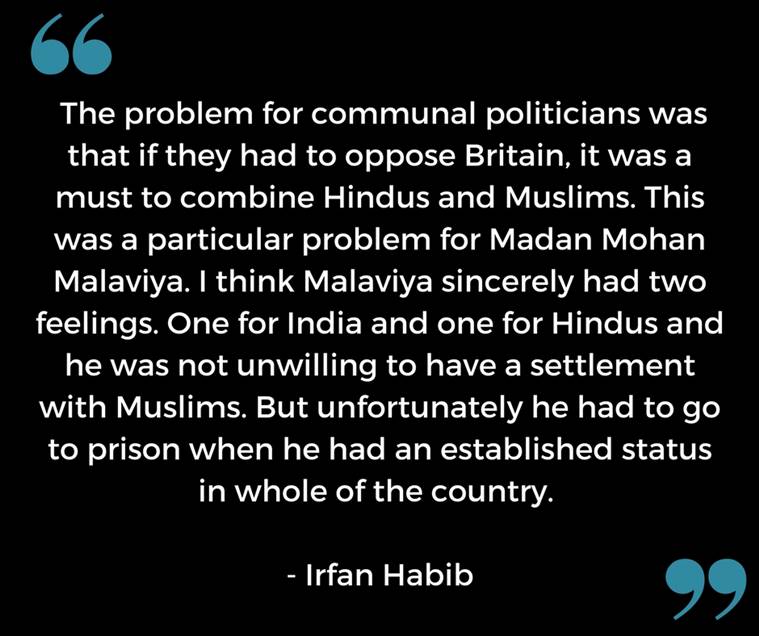
Does the left have a theoretical confusion in defining what the Hindutva regime constitute? Fascist, Semi – fascist or authoritarian? How do you theoretically define the Hindutva politics?
I would say that there are certain natural factors which give rise to tendencies like fascism. We believed with Georgi Dimitrov that it is financial capital that leads to fascism. But fascist tendencies have appeared in countries where financial capital was not developed and today of course financial capital has become more multinational than before and sometimes does not like fascism. It is mostly the combination of racial prejudice and national chauvinism that is the ideological root of fascism in the electoral process. Both in Germany where Nazis came and to certain extent in Italy, Mussolini came through electoral process. In Germany you could not see religion because Germany was far beyond that stage. But in India unfortunately religion is very strong. So if you combine a kind of religious doctrine with a total empathy for the corporate sector, total commitment to the capital sector, then I think you get a combination which has a best chance of an electoral success; you get money from the corporate sector and you appeal to religion as far as you can.
Other thing is that Golwalkar was very much influenced by Nazis. He praises them and that is why RSS and so on have consciously used those methods which Nazis used. Exciting particular prejudices, which the Nazis did against Jews, is what they are doing against Muslims and sometimes Christians. In that sense they are in the fascist category. Fascists always raise the issue of nations and race. Perhaps the difference between the Nazis and RSS is that Hitler really fought in world war first and none of the RSS ever did anything like that in our freedom struggle. As far as that part is concerned, they are different from Nazis.
During the freedom struggle, the problem for communal politicians was that if they had to oppose Britain, it was a must to combine the Hindus and Muslims. This was a particular problem for Madan Mohan Malaviya. I think Malaviya sincerely had two feelings. One for India and one for Hindus and was not unwilling to have a settlement with Muslims. But unfortunately he had gone to prison when he had an established status in whole of the country. But RSS and these people are not of that stuff and you will be surprised that why these people is not using Malaviya already. I am wondering why they look at others like Savarkar and forget Malaviya. I think Malaviya is too liberal for them and he went to prison. Savarkar of course apologized. Malaviya never did that.
It is exactly 150 years ago that Marx’s classic work Das Capital’s first edition got published. How do you read Das Capital in its 150th anniversary?
Marx certainly reshaped economics. Even the marginal utility theory doesn’t undermine his thesis though Marshall and others supposed. For us in India that particular portion of primitive accumulation is very important. Because it showed how the wealth has gone from the colonial countries. That is particularly important for us when we study colonial economy and in fact the development of the capitalism. It is also true that since his time and even in his time processes of accumulation were diverse and become divergent not only through the direct possession of the surplus value but also through other processes like manipulation by banks and stock exchanges for instance. These two were not studied by Marx. I think Engels refers to stock exchanges accumulations and speculative accumulations. But many accumulations and initiatives by Banks were very important. It creates financial capital and this significance of that was not understood till Keynes. I still think reading Keynes should strengthen Marxism rather than weakening it. Because his whole theory of the creation of money by banks is very important as a process of accumulation. That means without your knowing you are being impoverished. Because the bank introduce more money in the market and the prices increases. You are impoverished. Your money is being put in effect in the hands of the Capitalists.
This is also the centenary year of Russian revolution. What is the significance and legacy of Russian revolution? What led to the demise of that great socialist experiment in Soviet Union?
Actually, the October revolution of 1917 was an extremely important event in world history like the French revolution and its long term effects will last for a long time. First of all, it showed that socialist economy is possible. It showed that equality of opportunity could provide to a large number of people and our own national movements benefited from October revolution. The causes of its collapse must be studied and I think one reason for its collapse is perhaps that it did not allow enough initiative and enterprises. But I would still say that part of the collapse was accidental and I was reading a review of a book in a historical journal, in which they wrote about this accidental theory. If you ask any person in Eastern Europe — not Western Europe — at heart he has a thought for the communist days.
You are a lifelong communist, keeping faith in socialism — in both the ups and downs of the movement. What sustains your belief in socialism?
As far as I am personally concerned I think socialism is the only ultimate system of economic organization and political organization. But I think for building socialism one has to provide for entrepreneurship in a manner which continuously creates economic development and technological development.
Apr 19: Latest News
- 01
- 02
- 03
- 04
- 05











